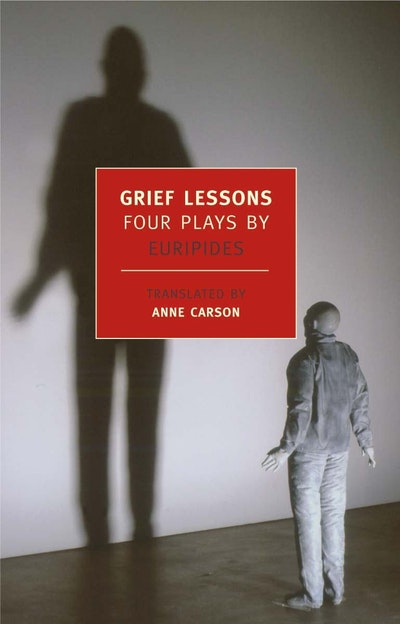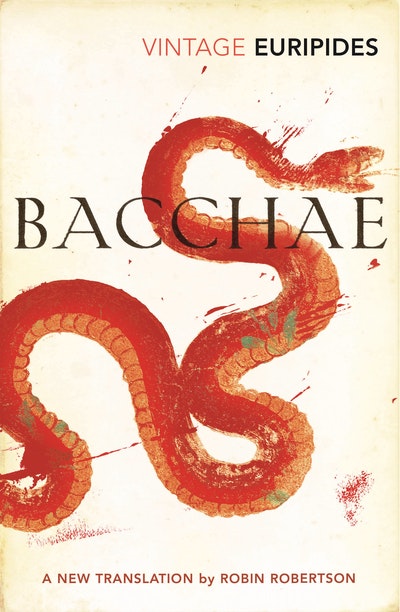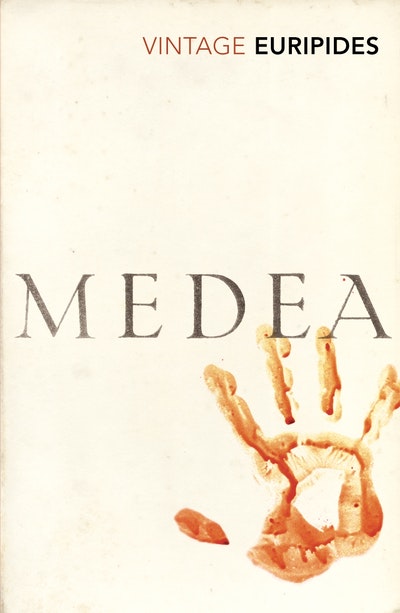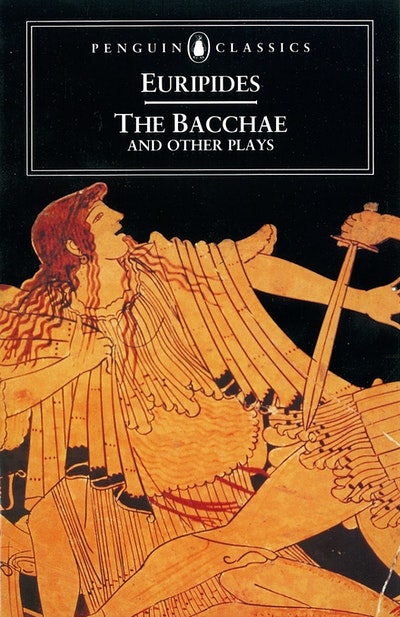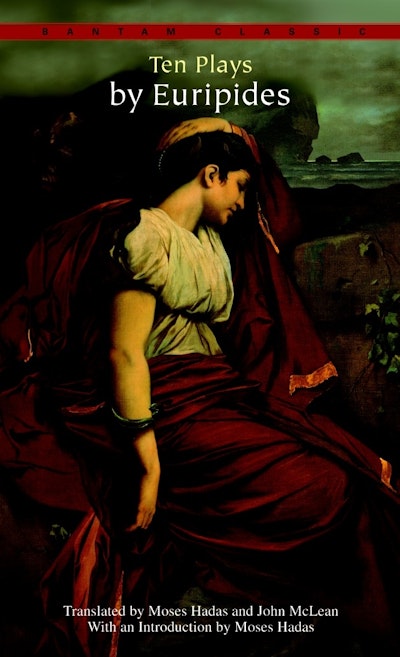[]
- Published: 15 November 2008
- ISBN: 9781590172537
- Imprint: NY Review Books
- Format: Paperback
- Pages: 312
- RRP: $32.99
Grief Lessons
Four Plays by Euripides
Buy from…
- Published: 15 November 2008
- ISBN: 9781590172537
- Imprint: NY Review Books
- Format: Paperback
- Pages: 312
- RRP: $32.99
"In Grief Lessons, the contemporary poet and classicist Anne Carson's spare and beautiful new translation of four of Euripides' lesser known tragedies, we have a kind of primer on the intrinsic dangers of blind devotion to ideology." -The New Yorker "An eclectic selection that provides an excellent introduction to Euripides's range. Ms. Carson's Euripides is bleak, moving, and provocative, offering a painful reminder of the resonance of these ancient plays with our own times." -The New York Sun "Grief Lessons...reminds us that the difference between competent and inspired translation is more than a matter of even bravura technical competence. It involves a kind of discreet union between writer and translator, a certain convergence of aesthetic impulse and intellectual inclination. The issue of such a union can take a reader's breath away because it just seems so right--a work that stands firmly on its own but is somehow contented to be the sum of its parts. Carson's is, in other words, an altogether worthy heir...It's a reasonable and reasonably provocative contemporary reading." -The Los Angeles Times "Writing with a pitch and heat that gets to the heart of the unforgiving classical world, Carson..is nothing less than brilliant--unfalteringly sharp in diction, audacious and judicious in taking liberties...Worth the price of admission alone is Carson's blistering essay-afterword, written in Euripides's voice...This amazing book gets very close to the playwright's enigmatic answers." -Publishers Weekly*
"In Grief Lessons, the contemporary poet and classicist Anne Carson's spare and beautiful new translation of four of Euripides' lesser known tragedies, we have a kind of primer on the intrinsic dangers of blind devotion to ideology." -The New Yorker "An eclectic selection that provides an excellent introduction to Euripides's range. Ms. Carson's Euripides is bleak, moving, and provocative, offering a painful reminder of the resonance of these ancient plays with our own times." -The New York Sun "Grief Lessons...reminds us that the difference between competent and inspired translation is more than a matter of even bravura technical competence. It involves a kind of discreet union between writer and translator, a certain convergence of aesthetic impulse and intellectual inclination. The issue of such a union can take a reader's breath away because it just seems so right--a work that stands firmly on its own but is somehow contented to be the sum of its parts. Carson's is, in other words, an altogether worthy heir...It's a reasonable and reasonably provocative contemporary reading." -The Los Angeles Times "Writing with a pitch and heat that gets to the heart of the unforgiving classical world, Carson..is nothing less than brilliant--unfalteringly sharp in diction, audacious and judicious in taking liberties...Worth the price of admission alone is Carson's blistering essay-afterword, written in Euripides's voice...This amazing book gets very close to the playwright's enigmatic answers." -Publishers Weekly*
